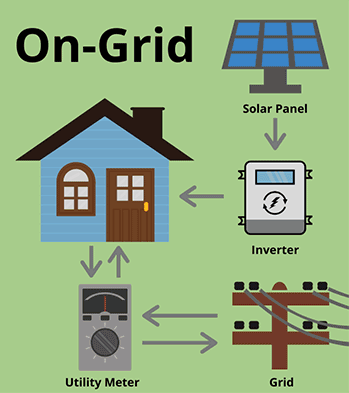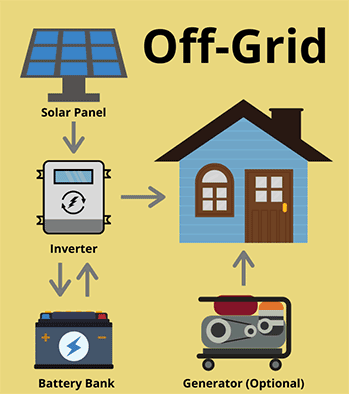Difference between on-grid and off-grid solar rooftop system
- Rajesh Mahajan
- Feb 6, 2021
- 2 min read
Grid-tied vs. off-grid solar. Ground mount vs. roof mount. Polycrystalline panels vs monocrystalline.
When it comes to installing a solar power system, there are a lot of decisions to make. And because you’re investing in equipment that will last many years, you want to make the right choices.
Key difference:
An off-grid solar energy system is not connected to the utility grid, whereas an on-grid (aka grid-tied) solar energy system is connected to the utility grid.
Your choice of an on-grid system or off-grid system will determine your access to electricity, what equipment is needed for excess production, what happens when the grid goes down, and how you’re billed for electricity.
On-grid system:
When the sun is shining, the system generated the electricity which is then used for household equipment's. Any excess electricity generated during the day time is exported back to utility grid through net meter. When the sun goes down, we rely solely on electricity from the utility company, and again the utility meter counts the number of units imported during night.
The net meter counts the number of units imported from the grid as well as number of units exported back to the grid and the consumer is charged for his/her net unit consumption (Import-Export) at the end of the month. All excess units are banked with the distribution company and can be compensated in the future when import units exceeds the export units.
During power cuts:
When the power from utility grid goes down, the on-grid system stops generating electricity even during day time.
Maintenance:
On-grid solar system require zero or very minimal maintenance.
Off-grid system:
When the sun is shining, the system generated the electricity which is then used for household equipment's. Any excess electricity generated during the day time is stored in the battery banks. When the sun goes down or cloudy weather, we regenerate the electricity from the power stored in the batteries.
During power cuts:
The off-grid system continuous to work normally during power cuts. During cloudy weather the power is supplied through batteries.
Maintenance:
Batteries used in off-grid solar system needs frequent maintenance. Additionally, batteries needs to replaced after few years of use which can be very expensive sometimes.
If you partner with a reputable solar installer, they’ll be able to guide you through these decisions to get you the perfect system for your situation. However, doing a little homework on the front-end can’t hurt either. That’s why we’re sharing the four differences between on-grid and off-grid solar power to help you decide which is best for your solar project.








Comments